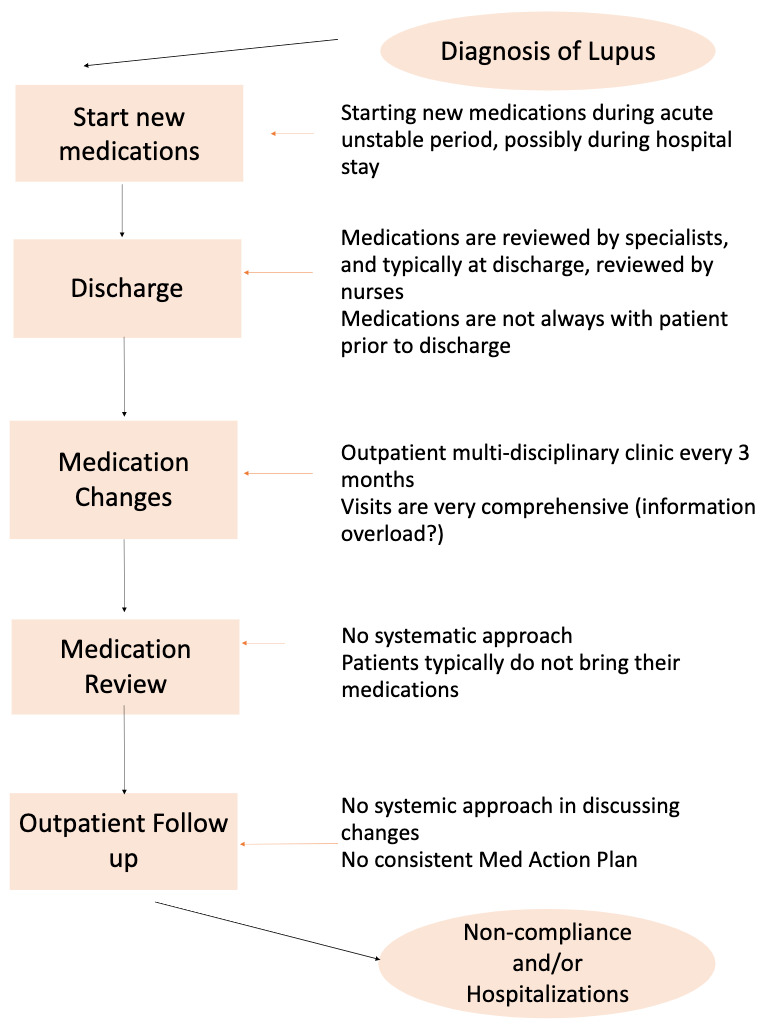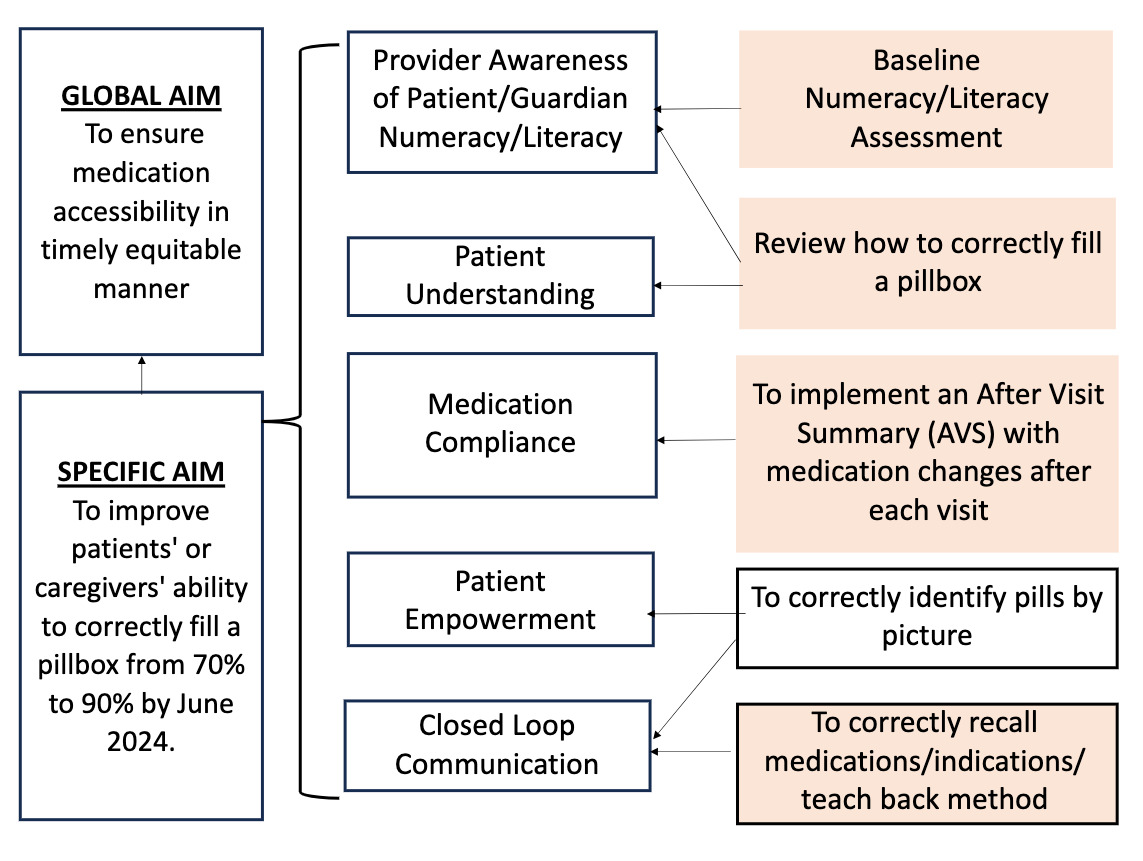Session Information
Session Type: Poster Session B
Session Time: 10:30AM-12:30PM
Background/Purpose: Health literacy is key to better patient outcomes. One aspect of health literacy that warrants additional investigation in patients who have systemic lupus erythematosus (SLE) is objective numeracy or capability to do mathematical problems (1). Poor medication adherence may be related to patient’s numeracy level (2). Among adults with SLE, lower numeracy was associated with more disease activity, Black race, and Medicaid insurance (3). The objective was to improve health literacy, specifically numeracy, of pediatric patients with lupus nephritis attending SLE clinic as assessed by patients’ or parents’ ability to correctly fill a pillbox by 20% (70 to 90%) by June 2024.
Methods: We recruited patients from the combined Rheumatology-Nephrology SLE clinic at Children’s National Hospital (CNH) and administered the Newest Vital Sign (NVS) and Short Test of Functional Health Literacy in Adults (S-TOFHLA) surveys to participants and/or their caregivers. We created four mock prescriptions for Prednisone, Lisinopril, Mycophenolate, and Hydroxychloroquine and asked patients and/or parents to fill a pillbox. For our first PDSA cycle, we educated patients and their caregivers on pillbox errors and gave a standardized after visit summary with medication changes. Patients received educational pamphlets on SLE during the second PDSA cycle. Third PDSA cycle tested patient’s knowledge of their medications and indications.
Results: From October through December 2023, we obtained data from seven patients and eight parents. Three parents were unable to fill out S-TOFHLA due to language barriers. The average age of patients was 13.7 years old. Ten of fifteen patients/parents (67%) who filled out the NVS had results suggesting limited/possible limited numeracy. Only one patient had concerns for limited literacy with S-TOFHLA. Six patients and two parents completed pre-test pillboxes. Only one patient and one parent filled it out correctly. Average score was 77.8%.
Conclusion: The majority of patients and their caregivers at CNH’s lupus clinic had limited/possibly limited numeracy. This highlights the need for education/instructions to be tailored. Most patients and parents were unable to fill a pillbox with 100% accuracy. After taking the time to discuss pillbox mistakes, most families understood their errors. This suggests there is room to target how we educate families on medication changes and understanding to ensure we meet the needs of our families and improve adherence. Providers need to continue to encourage more autonomy with teenagers. Data is suggestive that the focus should be on patient’s understanding of the reason for their medications and side effects.
To cite this abstract in AMA style:
Salach N, Rogal S, Simpson J, Sule S, Bosk A, Park C. Improving Health Numeracy Literacy in Pediatric Patients with SLE [abstract]. Arthritis Rheumatol. 2024; 76 (suppl 9). https://acrabstracts.org/abstract/improving-health-numeracy-literacy-in-pediatric-patients-with-sle/. Accessed .« Back to ACR Convergence 2024
ACR Meeting Abstracts - https://acrabstracts.org/abstract/improving-health-numeracy-literacy-in-pediatric-patients-with-sle/


